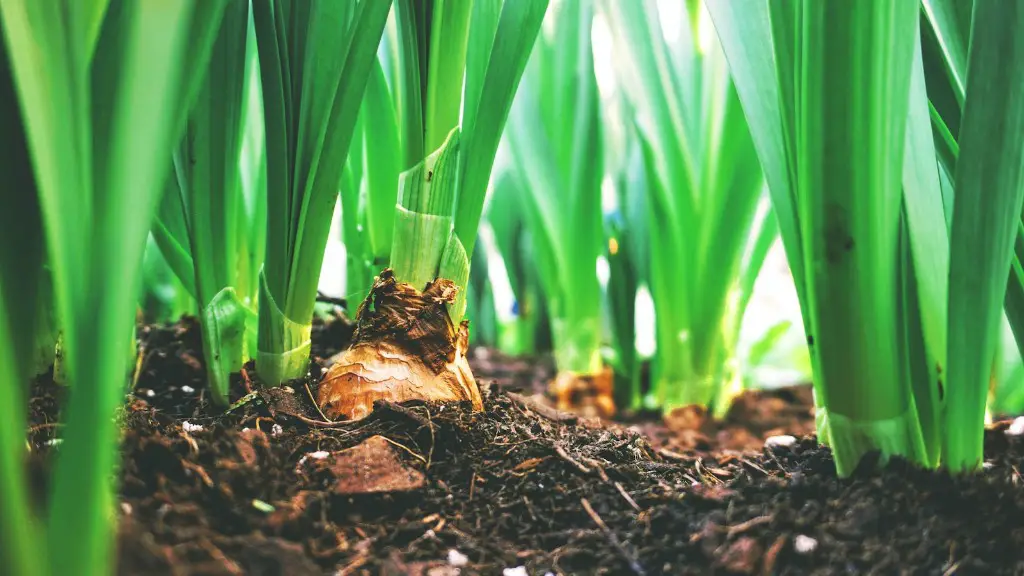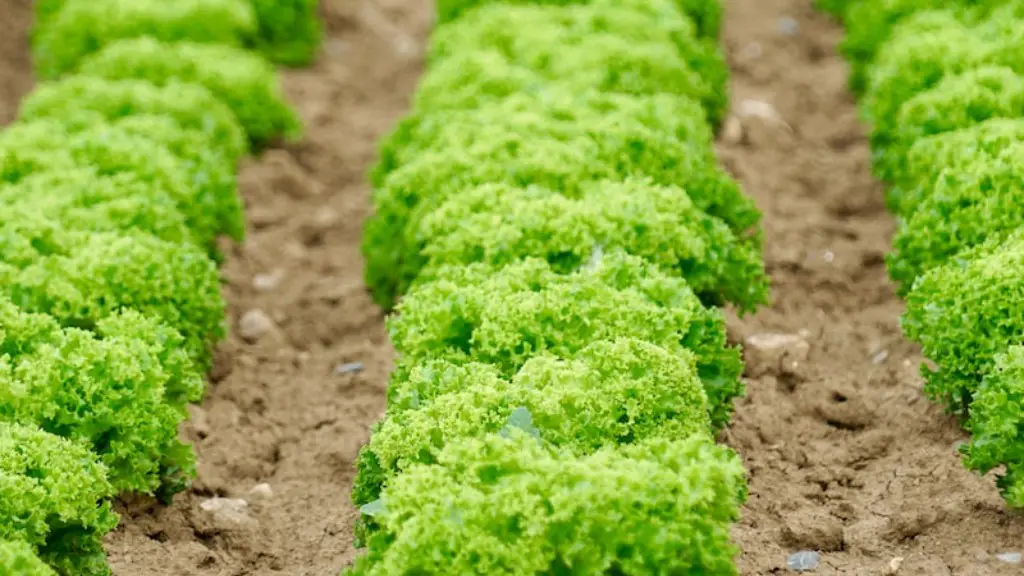Agriculture is a vital industry in Australia, contributing to both our economy and our way of life. Agriculture is one of our largest industries, worth around $60 billion a year, and employing over 330,000 people.
Over the past few decades, Australian agriculture has undergone significant change, adapting to new technologies and responding to consumer demands for healthier, more sustainable and ethical food.
Today, Australian farmers produce a wide variety of food and fibre products for both domestic and international markets, including beef, wheat, wool, dairy, fruit and vegetables.
Australian agriculture is also an important contributor to our economy, accounting for around 3% of our Gross Domestic Product (GDP).
So why is agriculture important in Australia? Agriculture is vital to our economy, our way of life and our food supply. It is an industry that is constantly evolving, responding to the ever changing needs of consumers and the environment.
Agriculture is the main source of income and employment in Australia. It is also a vital part of the country’s food security, as it supplies the majority of the food consumed in the country. Agriculture also has a significant impact on the Australian economy, contributing around $155 billion annually.
What is the most important agriculture in Australia?
Australia is one of the world’s leading producers of wheat, barley, sugarcane, cotton, and fruit and vegetables. The country’s key agricultural products also include cereals, grains, and legumes. Wheat is the most important crop in Australia, followed by barley, sugarcane, and cotton. The yield of wheat in Australia has fluctuated around two metric tons per hectare in recent years.
Agriculture provides most of the world’s food and fabrics. Cotton, wool, and leather are all agricultural products. Agriculture also provides wood for construction and paper products. These products, as well as the agricultural methods used, may vary from one part of the world to another.
What is the value of agriculture to Australia
The value of crops is expected to increase in 2021-22, with wheat leading the way at $131 billion, up 33% from 2020-21. Canola is expected to see the biggest increase, at 105%, followed by barley at 17%. This is good news for farmers and the economy as a whole.
Australian agriculture has benefited significantly from its historical focus on exports of raw agricultural and minimally transformed products. Australia’s focus on these products has likely created more value for the Australian economy than would have been available from a focus on more processed products.
The focus on raw agricultural and minimally transformed products has allowed Australia to capture a large share of the global market for these products. This has in turn generated significant income for the country, which has helped to support the development of the agricultural sector.
The focus on raw and minimally transformed products has also helped to create employment opportunities in the agricultural sector. This has been particularly beneficial in regional areas, where the agricultural sector is a major source of employment.
The focus on raw and minimally transformed products has also helped to keep prices for these products relatively low. This has benefited consumers in Australia and around the world.
Overall, the focus on raw and minimally transformed products has been a major driver of the success of the Australian agricultural sector. This focus has helped to create value for the Australian economy and has helped to support the development of the agricultural sector.
Does Australia rely on agriculture?
Agriculture is an important part of Australia’s economy. It contributes to around 2% of the country’s GDP and employs around 1.6% of the workforce. The sector is a major exporter, with around 60% of production being exported.
The main agricultural products grown in Australia include wheat, barley, oats, rice, sorghum, maize, fruits, vegetables, wool, beef, dairy products and wine. The country is a major producer of both wool and beef, and is also a significant producer of other agricultural products such as wheat, barley, oats, rice, sorghum, maize, fruits, vegetables, dairy products and wine.
Australia has a diverse range of climates and soils, which allows for a wide range of agricultural products to be grown. The sector is a major exporter, with around 60% of production being exported. The main markets for Australian agricultural exports are Asia, the Middle East and North America.
There are approximately 85,681 farm businesses in Australia, 99 percent of which are family owned and operated. Each Australian farmer produces enough food each year to feed 600 people, 150 at home and 450 overseas. Australian farms produce around 93 percent of the total volume of food consumed in Australia.
What are 4 benefits of agriculture to a country?
1. Agriculture is the main source of raw materials for industries.
2. It is important to international trade.
3. It plays a big role in a nation’s revenue.
4. It provides employment.
5. It’s crucial to a country’s development.
6. It can help heal the environment.
7. It goes hand-in-hand with war.
8. It can be a source of food security.
9. It can help conserve natural resources.
10. It can promote sustainable development.
There are many reasons why farming is good for your health. For one, being a farmer is challenging and stimulating work. It provides a source of income in rural areas and helps to develop younger generations. Additionally, farming can help the environment thrive.
What is the most important agriculture
Nitrogen is the most important nutrient for crop production, with phosphate and potash coming in second and third, respectively. Crop yields have increased over time due to increased use of fertilizers, improved crop varieties, and better management practices.
Australian values are based on a fair go for all, respect for others and equality. These values are enshrined in our Constitution and form the basis for our democracy.
Is agriculture in Australia sustainable?
There are already some major agricultural exports that are relatively less emissions intensive when compared to other countries. This provides an opportunity for Australia to further its reputation as a reliable and sustainable producer of these goods. Taking action on climate change will help to solidify this reputation and open up even more opportunities for trade.
China is one of the most populous countries in the world and has limited arable land. Despite this, they have been able to feed a large portion of the world’s population. This is a testament to their agricultural and economic productivity.
How does agriculture reduce poverty
The very poorest people primarily benefit from agricultural growth through increased demand for their labour. Agricultural growth increases the probability of obtaining employment, and it may increase the salary level, thereby increasing the income that can be accrued from selling labour. This extra income can be used to purchase essential goods and services, as well as to invest in education and health, which can help to break the cycle of poverty.
”
The agricultural sector is of utmost importance to any economy. It forms the basis for food and nutrition security and provides raw materials for industrialization. In spite of this, the sector is often neglected and underfunded. This needs to change if we are to achieve sustainable economic growth.
What is the impact of agriculture on economic growth?
It is well known that growth in agriculture results in increased employment in rural areas. This is because a host of non-tradable activities are immediately impacted by the growth in agriculture. Studies have shown that most farm households supplement their income from non-farm earnings. This means that the impact of agriculture on poverty reduction and food security is immediate.
AGriculture is the backbone of the Nigerian economy and provides food for human consumption, raw materials for industry, employment for labour, protection of the environment and preservation of species. It also provides a boost to exports and a means of subsistence for the people.
Which country is No 1 in agriculture
China is one of the world’s leading producers of agriculture products, despite having only 10% of the world’s arable land. China produces a quarter of the world’s grain output, and leads the world in production of fruit, vegetables, cereals, cotton, eggs, and poultry.
The table lists the top 5 countries in terms of cropland area per capita. India has the largest cropland area per capita, followed by the United States, China, Russia, and Brazil.
Conclusion
Agriculture is important in Australia for many reasons. It is a major industry that employs a large number of people and contributes a great deal to the country’s economy. Agriculture also provides food and fibre for the Australian community and for export markets, and plays a significant role in maintaining and enhancing the environment.
Agriculture is important in Australia because it is a major source of employment and export earnings. It is also a key sector in the Australian economy, contributing to GDP, exports, and household incomes.





